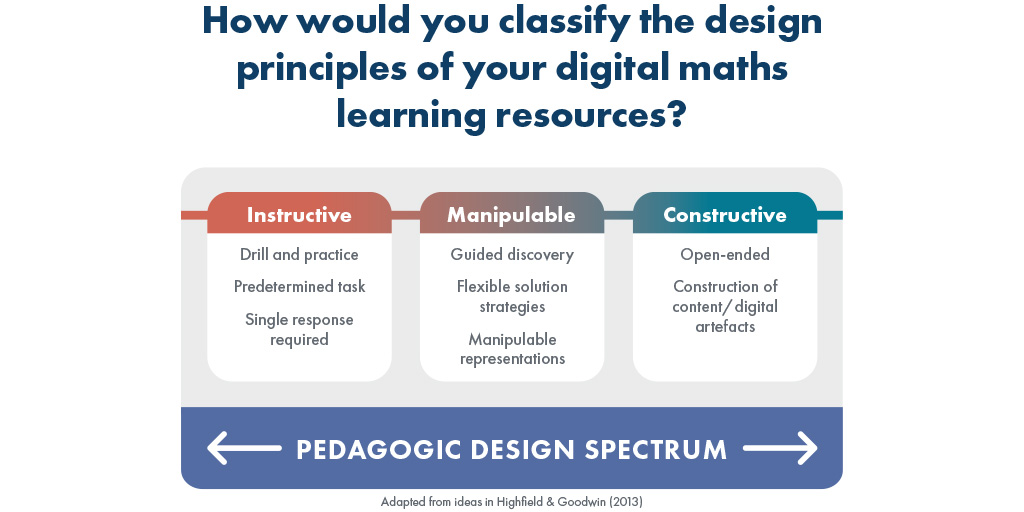02 June 2020

What does the research suggest about remote mathematics learning?
- There is a variety of methods to teach and learn remotely and use of synchronous and asynchronous methods is likely to be complementary
- There is little research at present on remote mathematics learning and most is with 18+ learners; this research is mixed
- Remote maths learning is an opportunity to try new pedagogies; it increases flexibility and connections for isolated students
- It can be more difficult for teachers to notice student anxiety or disengagement when working remotely, and it may increase workload and stress for parents or carers
- One of the biggest barriers to successful remote learning is student and teacher access to computers, mobile devices and the internet
- Selection of resources for remote learning is particularly key: online activities and apps for maths learning exist, but many are of poor quality, or fall only into the instructive category
- Both constructivist and objectivist methods may be used to teach maths remotely
- Representing mathematics in dynamic and visually rich ways and encouraging peer interaction supports remote maths learning
View Espresso